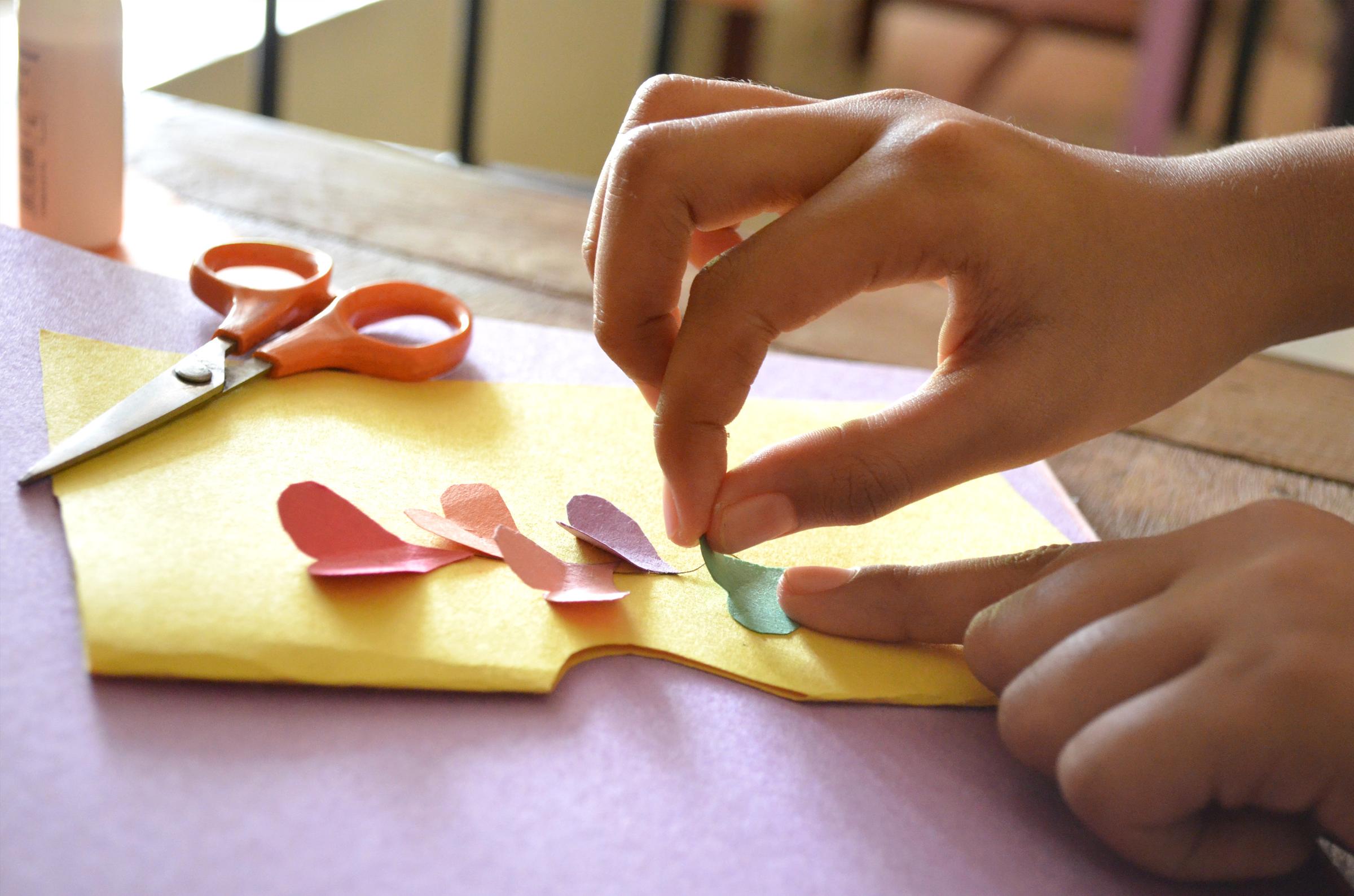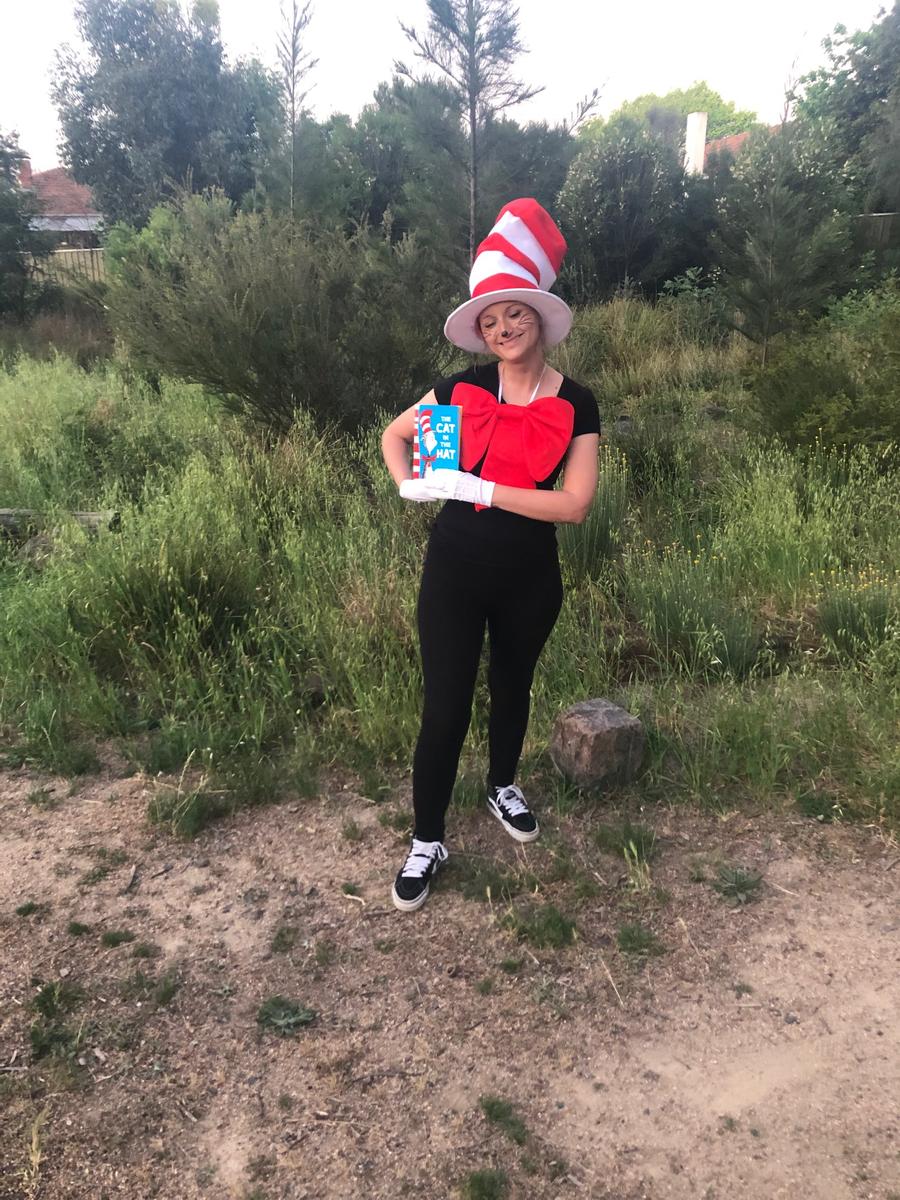school life

call. push. shock.
What does this mean you might ask? Well, this is the process of CPR (Cardiopulmonary Resuscitation). David Shearer and three of his paramedic colleagues came in on the 30th of October to talk the grade 5’s through the process of CPR.
We’re going to talk you through the eight basics of CPR; first you check for danger, then you check for a response by saying hello or calling their name (if you know it). If they don't respond, check for breathing. Then you call paramedics for help and you immediately start CPR, keeping to the beat of the song ‘Staying Alive’. If that doesn’t work, you use a defibrillator and listen to the instructions provided from the machine. By this stage, the paramedics should have arrived and you can hand over to them.
At the end of the session, we each got a take home pack that included a heart that will squeak if you are doing CPR with enough pressure. Starting CPR and having a defibrillator increases the chance of survival by up to 64 %. Even if you are not that confident, starting the process in a safe way is the right thing to do.
Sienna Mulcahy JARS
appreciation of above-and-beyond
For this week’s appreciation of above-and-beyond, I want to recognise the additional efforts of Amazing Alice! Like all our staff at BNW, Alice loves being at school and regularly commits additional hours to improve the educational experience of our students. The reason why I want to recognise Alice this week is that we are almost halfway through term 4 and she is still going! By this time of year, the school can tend to pull back on the additional hours we volunteer; between writing reports and planning for the future, the personal time teachers have available for extracurricular activities is limited.
Last week Alice and the wonderful Junior team (along with Tom and some fabulous 5/6 helpers) ran our first ever Grade 1 campfire, adding 6 unpaid hours to the end of her day. One week later, Alice surrendered two hours of her allocated planning time to assist us in our Foundation transition morning, with a beaming smile and reflective joy at her experience. And next week? Next week Alice is running a maths afternoon to speak with families about how they can support their high-achieving children at home. Alice does this without complaint, in fact, she beams with excitement! Thank you, Alice - for devoting yourself to our community and for making it utterly irresistible to not want to join in.
maths
There are so many wonderful teachers and leaders at BNWPS and I’m always curious to hear about their experiences and what their life was like before they came into the role they are in now. I think knowing someone’s backstory can help see why they are the way they are now. As I was writing down notes for the upcoming parent afternoon (happening Week 6 on Wednesday at 4pm-5pm), I was looking at the responses teachers gave me to parent questions and the wealth of knowledge was amazing! It made me so curious about teacher’s experiences at school and how that has shaped their teaching. I feel like I’ve shared quite a bit about my experience with school, so I wanted to ask some of the staff what their maths life was like, as well as the best maths lesson they’ve taught and what the best thing about maths is to them. I asked a range of teachers from different levels and asked leadership to share too. Even though I feel like I’m cheating a bit by copy and pasting the teacher’s responses instead of writing my own article, they are really interesting and not only show the passion they have for teaching, but also how much teaching has changed. If you look their own experience and the best lesson they have taught, you can really see the difference and no doubt the determination to not give their students the same responses. So, sit back, relax and enjoy some of the BNWPS staff (from the F-6 teachers as well as leadership) sharing their maths experiences!
Leadership
What was your experience of maths like in primary school?
I loved it until it got beyond rote learning – I really didn’t have deep understanding, nor could I apply what I knew.
What was the best maths lesson you’ve ever taught?
It wasn’t a lesson, rather it was a sequence of lessons which culminated in students making an anorak. We were studying Inuit’s (Eskimos) and we decided to make costumes for our plays – the anoraks, were part of this. The children had to measure themselves, then using a template, made any necessary adjustments, marked up and cut out the fabric. We then went on a sewing frenzy. It was a great process, applying real life maths to our inquiry. The kids loved it, the parents loved it…this was in a very disadvantaged school!
The best thing about maths is…..
That we use it every day and that it helps us make sense of our world!
What was your experience of maths like in primary school?
I struggled in primary school maths, it didn’t make much sense to me and I needed to stay in at lunch time to be part of a special maths group for kids who needed extra help. Thankfully I don’t think I was really very aware of what that meant about my own abilities and it never formed a belief in my mind about being ‘no good’ at maths. My main memories of maths are working from a book called “FUNdamentals” (which wasn’t fun for anyone who didn’t enjoy putting the correct number in the correct box) and whilst I enjoyed filling in those boxes, I don’t remember any “aha moments” in that book.
What I remember enjoying was in Kindergarten (1980s Canberra’s version of Foundation), we had a spare classroom that was set up like a shop and each week we got to go in and buy stuff from the shop. We had baskets and pretend money and empty containers from home and I remember even then that I knew I was learning and playing at the same time.
As an adult, looking back at my time in the primary school maths classroom, I wonder why I ended up enjoying maths so much. By high school I had gotten into a groove and have reflected many times on what helped me get into that groove and I honestly think it was my love of problem solving – even when I required numeracy intervention, I remember loving doing any conundrums, creative thinking or problem solving. I loved having a problem with no rules, no cheat answer and no fear of getting it wrong, because who knew if it was right?!
What was the best maths lesson you’ve ever taught?
You know there’s no way I can answer this with a singular lesson! There have been so many lessons and so many moments. Any moment when a child (or adult) has that “aha” moment, or when they ask a question that clearly demonstrates that they have mastered the skills you were hoping for and are now motivated to move onto the next question they have produced themselves. These moments are often not a whole lesson or a whole class, but brief moments with individuals that are incredibly powerful for their future learning and potentially their futures.
To give you an answer SOMEWHAT like what you were hoping for, my favourite LESSONS are the ones the kids don’t want to end – when they want to do maths instead of the next subject, or are asking if they can stay inside to keep working on it, if they are taking the ideas home to see what their family want to say (and if their family might help us find a solution) and when the maths lesson extends into days. One lesson I had with my class of 29 grade 6 students expanded over almost two weeks – a single lesson! We took up the MPR and used all the scrap paper we could find in the entire school in order to come close to the solution we wanted. But who knows what the maths was?
The best thing about maths is…..
It’s the language of the tangible and abstract world. I know we have different number systems, but our numbers (mostly) align across countries, cultures and time. I feel there’s something both special and powerful in this. Maths helps us make sense of what is around us and how we interact with the world around us and with that, we have power. I also love the complexity and beauty of maths, but that might be getting a bit beyond primary school. I love that maths seems so simple at first, but actually isn’t… 1 + 1 = 2, except sometimes it doesn’t… I love that it brings sense to our world and then raises so many questions (How can you have the square root of a negative number?!) and that it is just beautiful.
Foundation teacher
What was your experience of maths like in primary school?
Maths was a series of memorisation. I found the memorising easy and boring. I had a wonderful teacher in grade four who set us wide-ranging problems in which we had to use a variety of skills to solve – I loved them! I also had a teacher in grade 6 who told us that fractions were useless and we didn’t need them… I was lucky that year that my Dad was a maths teacher!
What was the best maths lesson you’ve ever taught?
The best maths lessons are the ones where we are working in groups to solve problems using a multitude of skills and maths ideas. Particularly when the kids want to keep solving it or are thinking of creative solutions well past the ‘maths lesson’!
The best thing about maths is…..
The way it is useful in EVERY aspect of life. I love that kids can see the skills they are learning when we are doing the calendar, checking the weather or working out how many icy poles they can afford at sprout!
Junior school teacher
What was your experience of maths like in primary school?
From memory, my math experiences in primary school were very rote based. I am not sure how meaningful my learning was.
What was the best maths lesson you’ve ever taught?
I don’t know if there is a best lesson. I love teaching maths. I love enabling students to see the connections between math and the everyday. I don’t think I fully understood the importance of math skills growing up. I love being able to illustrate the relevance, usefulness and power of mathematics to the students I teach. A great lesson we did last week in the Junior school was making a ‘fruit salad’ using our growing understanding of fractions. We followed a recipe that required 1/2 of a banana, 1/4 of the strawberries, 1/8 of a pineapple etc.
The best thing about maths is….
That it is fun to teach and learn! It can be hands on, using visuals, images and materials, and make explicit links to the real world.
Middles
What was your experience of maths like in primary school?
I really disliked maths in primary school. We were always being made to compete against each other about who knew more times tables. And I was always a more hands on learner and always had trouble learning my times tables! So was

